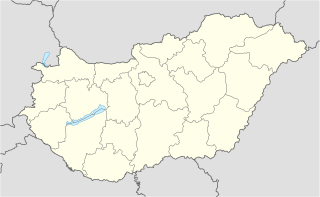
Hahót is a village in Zala County, Hungary.
Csák (II) from the kindred Hahót was a Hungarian noble, who served as bearer of the sword between 1256 and 1257. He was the ancestor of the Csányi noble family.

Buzád II Hahót, O.P., was a Hungarian nobleman, the first known Ban of Severin. He later gave up his position in society and entered the Dominican Order.
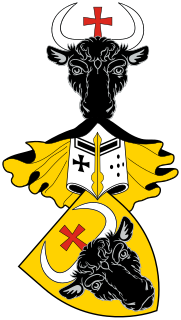
Hahót or Hahót–Buzád was the name of a gens in the Kingdom of Hungary, several prominent secular dignitaries came from this kindred. The last noble family, which originated from the kindred, became extinct in 1849.

Arnold (II) from the kindred Hahót was a Hungarian baron, who served as Palatine of Hungary for a short time in 1242.
Nicholas (III) from the kindred Hahót was a Hungarian noble and landowner, whose rebellion against the newly crowned Stephen V of Hungary in 1270 was a dress rehearsal for the era of feudal anarchy lasted until the 1320s, and also caused the 1271 war between Hungary and Bohemia.
James from the kindred Hahót was a Hungarian noble, who served as Master of the stewards for Queen Dowager Elizabeth in 1280.
Arnold (III) from the kindred Hahót was a Hungarian noble.
Thomas from the kindred Hahót was a Hungarian prelate, who served as the Archbishop of Kalocsa from 1254 to 1256.
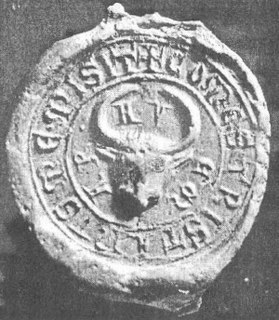
Tristan from the kindred Hahót was a Hungarian noble, who served as Count of the Heralds in 1255.
Hahold (III) from the kindred Hahót was a Hungarian noble, who served as ispán of Vas County from 1237 to 1239.
Hahold (IV) from the kindred Hahót was a Hungarian noble.
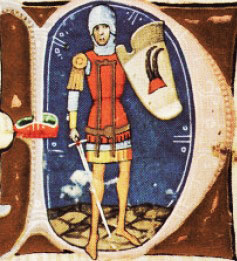
Hahold (I) from the kindred Hahót, also known as Hahold the Great, was a German mercenary knight possibly from Thuringia who settled down in the Kingdom of Hungary. Promoting to the Hungarian nobility, he became the first member of the gens Hahót, thus he was also the forefather of the late medieval powerful Bánfi de Alsólendva family.
Atyusz from the kindred Hahót was a Hungarian noble, who served as ispán of several counties in the second half of the 13th century. He was also the ancestor of the Szabari noble family.
Michael (I) from the kindred Hahót was a Hungarian noble, who served as ispán of Varaždin County in 1244.
Stephen (I) from the kindred Hahót was a Hungarian noble, who served as ispán of Varaždin County in 1297.
Nicholas (VII) from the kindred Hahót was a Hungarian baron and soldier, who served as Ban of Slavonia from 1343 to 1346 and from 1353 to 1356; and Ban of Croatia from 1345 to 1346 and from 1353 to 1356. In this capacity, he played a key role in the restoration of the Hungarian suzerainty over Croatia. Also known as Nicholas of Alsólendva, he was the progenitor of the powerful Bánfi de Alsólendva noble family.
Keled (I) from the kindred Hahót was a Hungarian noble, who served as Vice-ban of Slavonia and ispán of Zagreb County in 1234. He held both offices simultaneously, when the powerful baron Julius Kán served as King Andrew II's last Ban of Slavonia.
Szabari or Szabary was the name of a short-lived lesser noble family in Zala County, Kingdom of Hungary in the 14th century.
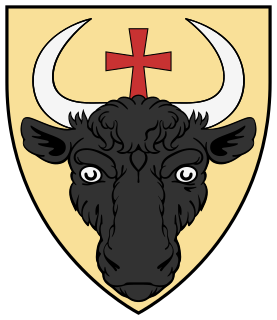
Csányi or Csány was a noble family in the Kingdom of Hungary, which first appeared in the early 14th century and had estates and villages mostly in Zala County.
This page is based on this
Wikipedia article Text is available under the
CC BY-SA 4.0 license; additional terms may apply.
Images, videos and audio are available under their respective licenses.






